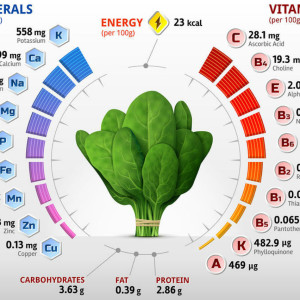
Role of magnesium supplementation in the treatment of depression: A randomized clinical trial – an article from Plos One.
Although this journal article does not specifically address magnesium’s role in cancer, I would be remiss if I did not include this article in the May issue.
According to the World Health Organization, 350 million people worldwide suffer from depression, and depression is a leading cause of disability. Many, if not most patients suffering from cancer, experience anxiety and depression. Unfortunately, many of the commonly used antidepressants are often not effective for individuals, and there is even a risk that these drugs can worsen depression, and even cause suicidal ideation.
What is particularly exciting about this study is that magnesium was effective in improving scores in patients who were already using pharmacologic antidepressants. It would be interesting to see a study comparing magnesium to SSRIs, but that study will of course never receive funding.
Cancer patients who are using opiates commonly suffer from constipation, so the use of magnesium citrate can help with constipation and depression/anxiety simultaneously.
Although in this study, the investigators used magnesium chloride, I prefer to use magnesium glycinate for patients without constipation, because of the calming effect of glycine on the CNS. If constipation is an issue, I prefer magnesium citrate.
Keep in mind that in this study, they used 248 mg of elemental magnesium per day. Magnesium citrate contains 16% elemental magnesium and magnesium glycinate contains 14% elemental magnesium, so when you prescribe it, be sure your calculations are correct.
healthyliving March 13th, 2019
Tags: antidepressants, clinical trial, depression, depression treatment, magnesium, magnesium supplement, trial

Nutrient profiling isn’t new. Alternative health researchers, and naturopath doctors, have been doing it for decades.
Simply said, this is the process of identifying which foods, vitamins, minerals, etc… pack the biggest nutritional punch.
Recently, the CDC got into nutrient profiling as well. They’ve identified certain foods they
claim are most strongly associated with reduced chronic disease risk. You might be surprised to learn what they are, you may already be eating many of them every day.
Like many people, you’re probably eating a
lot more salads. Did you know the CDC found that several salad greens and foods really pack a major nutritional punch? These common salad staples were found to contain 17 significant vitamins, minerals, and phytochemicals, in quantities found to offer the best protection to your health.
These include B vitamins thiamine, folate, riboflavin, niacin; vitamins C, D, E and K3. and minerals like potassium, zinc, iron and calcium. It also includes other nutrients like Protein and fiber.
The Top 5 Powerhouse Greens Rated By the CDC:
1. Watercress: This green scored a whopping 100% on the CDC’s nutrient density scale.
2. Chinese Cabbage: This Asian favorite scored second at 91.9% on the scale.
3. Chard: Commonly known as Swiss chard, this green came in third at
89.27% on the scale.
4. Beet Greens: These are great raw in salads and cooked in various vegetable dishes. Beet greens scored 87.08% on the scale.
5. Spinach: A favorite in summer salads, this green power food came in fifth at 86.43% on the scale.
While supplements are great to boost certain nutrients in your diet, especially if you’re trying to lose weight, the bulk of your nutrition should come from the foods you eat. This list of powerhouse greens is a great place to start.
healthyliving January 17th, 2017
Tags: beet greens, chard, chinese cabbage, healthy nutrition, spinach, watercress

Many people don’t realize that your brain is very sensitive to your nutrition, and works best when it gets the nutrients it needs. Many of my patients, and perhaps you, may not get enough brain food. These include good fats like those from fish, nuts, olives, etc. Studies have shown that Omega-3 fats, particularly the DHA portion of them, are particularly beneficial to your brain health and memory.
Your brain is also about 75% water and thrives on you being optimally hydrated. When you’re dehydrated, your thinking becomes fuzzy; you become confused, and can’t seem to connect your thoughts very well.
Your brain also needs glucose (sugar) to function correctly. If you’ve ever gone on a low carb diet for more than a few days, you may have noticed that your mood and your clear thinking took a nose dive. That’s because your brain needs measured amounts of glucose to power its functions. Your body processes glucose from the foods you eat. On a low carbohydrate diet, it takes your body much longer to break down proteins into glucose.
But that doesn’t mean that eating a high carbohydrate diet will be better for your brain function. If your brain is bombarded by high levels of sugar in your blood from a high carbohydrate/sugar diet, it has just the opposite effect. Your short term memory (where you put your car keys) becomes impaired, it takes you much longer to retrieve stored information (someone’s name), and it becomes harder to concentrate or learn anything.
In short, all your cognitive functions become impaired with higher blood sugar levels. Lately, researchers have been proving it over and over. For example, German researchers out of Charite-University in Berlin recently looked at mental functioning and brain structure of middle aged and elderly adults. They found that for every point increase in Hemoglobin A1c (measures blood sugar averages over 3 months), there was a corresponding decrease in the participants recall, learning ability and memory consolidation.
They also found that the participant’s brain structure changed as well. MRI brain scans revealed that the brains of those with chronically elevated glucose levels lost volume, specifically in the hippocampus areas. This is the area of the brain associated with cognitive functions like learning and memory. These researchers concluded that lifestyle changes to control blood sugar levels could likely help prevent age-related cognitive decline.
healthyliving January 3rd, 2017